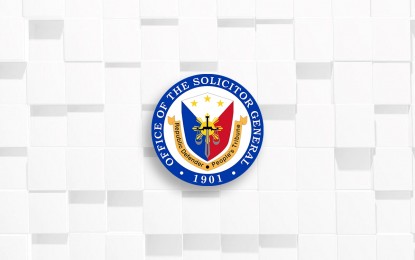
MANILA – The recent decision of the Supreme Court (SC) to uphold the Anti- Terrorism Act (ATA), save for two provisions, was a clear victory for the government as it joins the global crackdown on terrorist organizations.
Assistant Solicitor General Angelita Miranda said the government is still waiting for the formal copy of the decision but from all indications, they are satisfied with the ruling of the high tribunal despite the “two minor items that does not diminish the efficacy of the ATA”.
“We are not saying we are not going to file a motion for reconsideration,” Miranda said during a press briefing on Monday, adding that the decision to strike out a portion of Section 25 on requests from other jurisdictions, such as the European Union, to designate terrorists has “no impact on the entirety of the law”.
A vote of 9-6 declared unconstitutional Paragraph 2 of Section 25 that says request for designations by other jurisdictions or supranational jurisdictions may be adopted by the ATC (Anti-Terrorism Council) after determination that the proposed designee meets the criteria for designation of UNSCR (United Nations Security Council Resolution) No. 1373.
Resolution No. 1373 was adopted by the UN Security Council on Sept. 28, 2001 in the wake of the terrorist attacks carried out in the United States on September 11.
Undersecretary Severo Catura, Executive Director of the Presidential Human Rights Committee Secretariat, said the SC ruling on Section 25 only ensures that the Philippines’ “own mandate will not be encroached” by foreign bodies making requests to the ATC and noted that the Philippine justice system is free to make a determination in designating a terrorist individual or organization.
“We have our own judicial system,” he said.
On a part of Section 4 (...which are not intended to cause death or serious physical harm to a person, to endanger a person’s life, or to create a serious risk to public safety) that was similarly voided by a 12-3 vote for being “overbroad and violative of freedom of expression”, Catura said it is "superfluous" and does not affect the law overall. (PNA)
